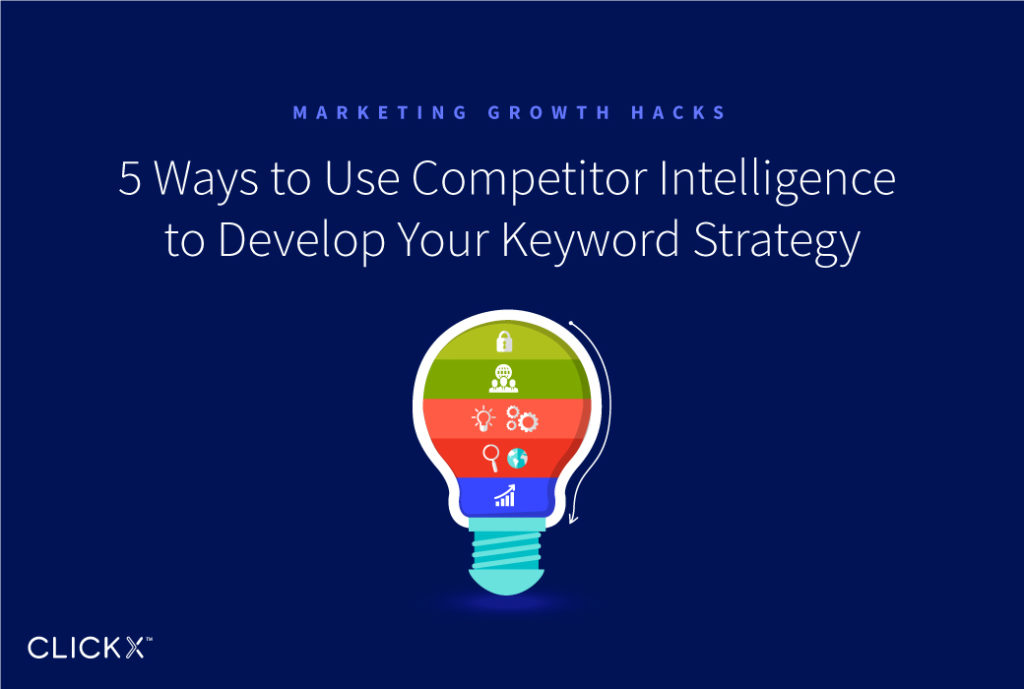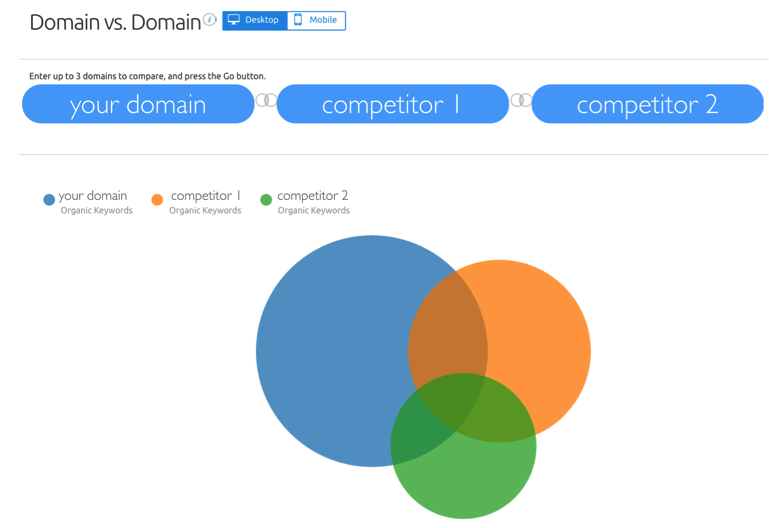5 Ways to Use Competitor Intelligence to Develop Your Keyword Strategy
Competitor intelligence can be a gold mine if used adequately. Knowing what keywords your competitors are using in either their paid or organic campaigns can be a hidden weapon to developing a campaign that can give you quick wins and puts you on track for long term success.
But how exactly can you use competitor intelligence? Here are five tactics you can use to turn competitor intelligence into opportunities.

1. Find Weaknesses
They always say keep friends close and enemies closer for a reason. Competitor intelligence can help you identify your competitors’ weaknesses. For example, you might find that they are not ranking well for a particular product or service you offer. That’s your opportunity to capitalize and ensure you get ahead of them by being the first to stake your claim for that product or service.

TIP: Take stock of all relevant keywords with search volume for which your competitors don’t rank and work those into your own keyword strategy.
2. Find Low-Hanging Fruits
It’s easy to get carried away and focus solely on short-tail keywords. The truth is, however, that most searches happen around long-tail keywords. Competitor intelligence can tell you exactly what terms your competitors are optimizing for organically or bidding for in paid search. If they’re goal is to get traffic from short-tails, it’s definitely a great strategy for getting traffic but most likely not the best for their pocket books. If your competitors are sizeable and you’re working with a small budget, long-tail keywords are a sure way to get the most out of your budget.

TIP: Rather than going after the same head terms as your competitors, incorporate long-tail keywords with modifiers into your keyword strategy. Think about materials, applications, characteristics or other ways people might search for your given product or service.
3. Define Your Content Strategy
Competitor intelligence is great when it comes to defining your own content strategy. Knowing your competitors’ rankings (or lack thereof) can help you shape your content strategy. Matching competitor keyword data to the ranked pages or converting landing page, gives you a leg up on what works well and what doesn’t. You’ll probably see patterns when it comes to content length, quality, format and even calls-to-action.
TIP: See which of your competitors’ website or landing pages rank the best and analyze them to develop an improved version of their content and strategy for your own site.
4. Allocate the Right Budget to the Right Channel
Most competitor intelligence tools, like SEM Rush, will tell you how well your competitors are doing on the organic and the paid fronts. You might notice that your competitors are investing heavily into one channel but not the other – giving you an opportunity to close the gap by beating them in their less important channel. The budget they spend on each can also give you a realistic view of what it takes to compete.

More than just how well your competitors are doing on each front, competitor intelligence will tell you exactly what keywords they may be bidding on and converting the most. Knowing what’s working for them can help you avoid costly mistakes.
TIP: Review competitor intelligence data to identify what your competitors are really targeting. Once you know this, you’ll know exactly what you’re up against. You’ll also be able to be selective about what keywords to use in what channel for optimal ROI.
[Tweet “See how you can use competitor intelligence to improve your #SEO keyword strategy: http://clickxstag23.wpengine.com/competitor-intelligence-develop-keyword-strategy”]
5. Prioritize Your Strategy
If you’re just starting organic or paid search for your own website, you’re probably overwhelmed at how much you have to do to catch up to your competitors. It’s true. Being the underdog is no fun. However, competitor intelligence can help you determine where and how to prioritize your own strategy, especially when it comes to keywords. Knowing what terms your competitors are bidding for on paid searches, for examples, can lead you to bidding on keywords that are less costly and just as qualified. It can also help you analyze which terms, for which you are competing head-to-head with your competitors, will be easiest and hardest to overtake.
TIP: Don’t try to go head-to-head with your competitor if you’re the new kid on the block. Instead, focus your strategy on racking up keywords your competitor hasn’t even discovered yet.

From reaping the benefits of identifying keyword weaknesses, finding undiscovered, long-tail keywords, defining your content strategy, helping you allocate the right budgets to each channel, and prioritizing keyword focus, using competitor intelligence can make your own campaign all that more intelligent.



